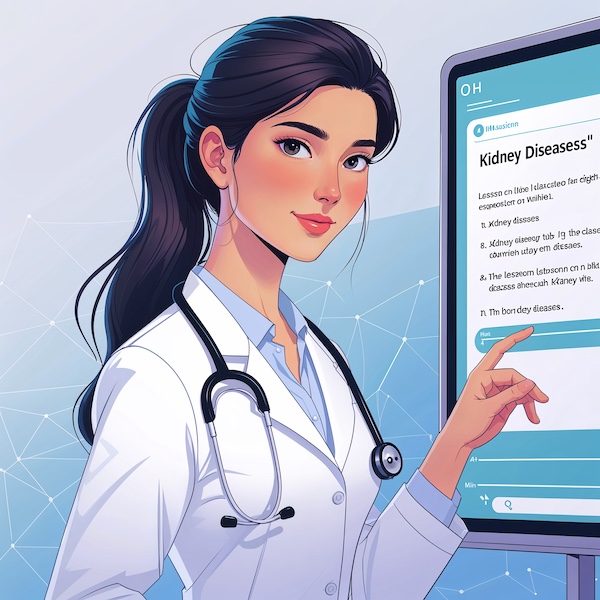What is kidney disease?
Your two kidneys, located near the middle of your back below your rib cage, filter waste and extra fluid from your blood. Chronic kidney disease leads to a gradual loss of kidney function. Advanced-stage kidney disease might cause dangerous fluid and waste build-up in your body when left untreated, which can be fatal.
What are the symptoms of kidney disease?
Common symptoms of kidney disease include:
- Fatigue
- Weakness
- Vomiting
- Nausea
- Loss of appetite
- Sleeping problems
- Urination changes
- Muscle cramps or twitches
- Feet and ankle swelling
- Decreased mental sharpness
- Chest pain
- Shortness of breath
- Persistent itching
You may not experience any symptoms with kidney disease, at least not right away, as they might appear after irreversible damage occurs. See the Kidney360 team at the first sign of kidney disease.
What are the risk factors for kidney disease?
Certain factors increase your risk of kidney disease. Examples include genetic problems, some medications, injuries, family history of kidney disease, older age, kidney structure problems, and chronic diseases like high blood pressure and diabetes. Smoking and obesity also contribute to a higher risk of kidney damage.
How does my provider diagnose kidney disease?
To diagnose kidney disease and develop an effective treatment, your Kidney360 specialist reviews your medical history and asks about your symptoms. They complete a physical examination and might recommend you undergo blood tests, urine tests, imaging tests, or a kidney biopsy (tissue sample).
What are my kidney disease treatment options?
Depending on the type and severity of kidney disease you have, your specialist might recommend:
Lifestyle changes
Your provider may suggest you follow a special diet to limit your kidneys’ work to excrete waste products. They might ask you to limit sodium, choose lower potassium foods, and reduce protein-rich foods.
Medications
Taking certain medications to lower blood pressure or cholesterol, treat anemia, protect your bones, or relieve swelling is another kidney disease treatment option.
Regenerative medicine
Regenerative medicine enhances your body’s natural ability to heal damaged organs and other tissues. Healthy cells or tissues from a donor can enhance cell regeneration.
Dialysis
Dialysis is a treatment for advanced stages of kidney disease. The procedure artificially removes waste products and excess fluid from your blood. Kidney360 offers in-office hemodialysis, peritoneal dialysis, or home dialysis based on your personalized needs.
Kidney transplantation
If you have severe kidney damage, your specialist might recommend kidney transplantation from a healthy living or deceased donor. During surgery, your doctor inserts a new kidney into your body to better eliminate waste materials.
If you’re at risk of kidney disease or you suspect you have kidney damage, schedule an appointment with Kidney360 by phone or book online today.











